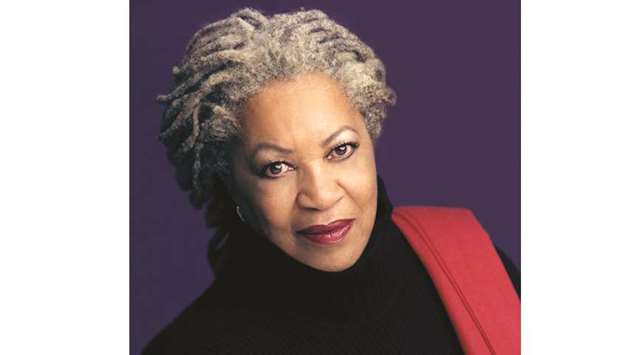One of America’s greatest writers had a birthday last month, and she gave us all a gift.
Toni Morrison turned 88 on February 18. If anyone has earned the right to rest on her laurels, it would be Morrison. She has had not one but several distinguished careers, as an editor at Random House where she worked to bring black literature into the mainstream, and as a professor of writing at Cornell, Bard and Princeton. She is a writer in many genres, from children’s books to criticism.
What she is internationally famous for, of course, is her fiction, 11 novels of extraordinary power and beauty, the crown jewel among them her masterpiece, Beloved. Published in 1987, it earned the Pulitzer Prize and a tower of other awards. In 1993, she received the Nobel Prize for Literature.
On February 12, Morrison published The Source of Self-Regard: Selected Essays, Speeches, and Meditations. The pieces in this collection range over almost four decades, from 1976 to 2013, and include commencement addresses, eulogies, essays on other artists and her own work, and her Nobel lecture on the power of language.
The introduction is titled Peril, and in it Morrison lets us know why she feels this book is necessary: Writing is powerful and therefore, in times like ours, threatened.
That’s inevitable, she writes, “because truth is trouble. It is trouble for the warmonger, the torturer, the corporate thief, the political hack, the corrupt justice system, and for a comatose public. Unpersecuted, unjailed, unharassed writers are trouble for the ignorant bully, the sly racist, and the predators feeding off the world’s resources. … Therefore the historical suppression of writers is the earliest harbinger of the steady peeling away of additional rights and liberties that will follow.”
One striking thing about these essays is how utterly timely many of them remain. The subjects that Morrison has focused her mighty intellect upon for more than half a century continue to be essential issues.
Her great subject has always been America’s original sin of racism, and it surfaces in almost all of these pieces. In a 1994 speech, A Race in Mind, she discusses, among other things, blackface. “The point to remember is that minstrelsy had virtually nothing to do with the way black people really were; it was a purely white construction. … The black mask permitted whites to say illegal, unorthodox, seditious, and sexually illicit things in public. In short, it was a kind of public pornography, the main theme of which was sexual rebellion, sexual licence, poverty, and criminality.” So much for harmless, nonracist college pranks.
Morrison explores the complexities and consequences of racism in many of these pieces, from the issue of immigration, so tainted by irrational fear of the Other, to literature, tackling race in those great American novels The Adventures of Huckleberry Finn and Moby-Dick. Of the latter she writes, “But if the whale is more than blind, indifferent Nature unsubduable by masculine aggression, if it is as much its adjective as its noun, we can consider that possibility that Melville’s ‘truth’ was his recognition of the moment in America when whiteness became ideology. And if the white whale is the ideology of race, what Ahab has lost to it is personal dismemberment and family and society and his own place as a human in the world.”
Her approach to the Other is always to attempt to understand them by imagining their lives, even in fairy tales. In Cinderella’s Stepsisters, she brushes off the “rather vague absent father and a nick-of-time prince with a foot fetish” as well as Cinderella’s surrogate mothers, because “it is the stepsisters who interest me.”
In real life, she imagines her way into the ultimate Other, the racist, revealing the terrible intimacy of the relationship between hater and hated: “If I spend my life despising you because of your race, class, or religion, I become your slave. If you spend yours hating me for similar reasons, it is because you are my slave. I own your energy, your fear, your intellect. I determine where you live, how you live, what your work is, your definition of excellence, and I set limits to your ability to love. I will have shaped your life. That is the gift of your hatred; you are mine.”
In the title essay, Morrison writes of the power to counter such hatred. The essay is a fascinating exploration of her process in writing Beloved, most of which takes place during Reconstruction, and the novel that followed it, Jazz, set in the 1920s. The author details how she grappled with writing historical novels, with immersing herself in research but then finding the evocative, unique images that bring a novel to life.
She writes, too, of the power of love to make us free. In Beloved, Sethe commits an unimaginable act of violence out of love for her child. For a slave, who had no claim to her own flesh and blood because that baby was someone else’s property, choosing that fatal love was revolutionary. Jazz focuses on romantic love rather than familial love; its black characters, unlike their enslaved ancestors, can choose with whom they get intimate, form families, fall in love. “Where they could effect the widest possible choice,” she writes, “by deciding to fall in love. Claiming another as the beloved. Not because of filial blood relationships or proximity, but precisely because it was ad hoc and accidental and fated but not predictable.”
In a speech last year, Oprah Winfrey (another powerful woman whose career is inextricably connected to Morrison’s) said of the author, “She is our conscience, she is our seer, she is our truth-teller.”
In an era when complex ideas are reduced to slogans and tweets, when language is dumbed down and truth so often debased, The Source of Self-Regard moves with courage and assurance in the opposite direction. What a gift.
—Tampa Bay Times (St. Petersburg, Florida)

Photo
